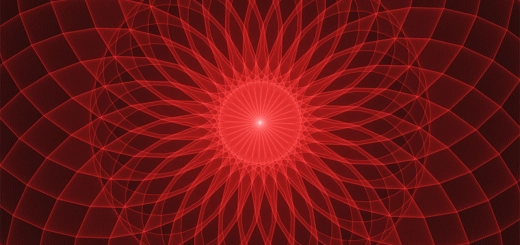Most Spoken Languages in Europe: A Closer Look at the Linguistic Diversity

Looking for more amazing products? Check out our online store and explore our collection here! Happy shopping!
Before diving in, please note: This post is for informational purposes only. If you’d like to know more about how we approach topics, feel free to check out our friendly Disclaimer Page.
Hey there, amazing readers! 
We’re committed to delivering quality posts, and your support (even just sticking around despite the ads) means everything to us. So, bear with us, and thanks for helping us keep the good vibes rolling. Now, on to the fun stuff!
TRANSLATE BUTTON AT THE END OF THE ARTICLE
Europe is known for its rich cultural history and diverse languages.
From the bustling streets of London to the historic city of St.
Petersburg, Europe’s linguistic landscape is as varied as its architecture and traditions.
But which languages dominate the continent?
Whether you’re planning a trip or simply fascinated by language, understanding which languages are spoken the most across Europe can offer some valuable insights.
Let’s dive in and explore the most spoken languages in Europe today.
English
Without a doubt, English reigns as one of the most spoken languages in Europe.
It’s often regarded as the lingua franca of the continent, used in business, science, technology, and, of course, in popular culture.
Though native speakers are primarily from the United Kingdom and Ireland, English is widely understood in many European countries, from the Netherlands to Sweden.
In fact, many countries in Europe place a significant emphasis on teaching English as a second language, making it the de facto communication tool for travelers and professionals alike.
Why English is so prevalent:
Historical ties with the British Empire
Widespread use in global media
Education systems prioritizing English
Russian
Russian takes the second spot in terms of the number of speakers across Europe.
While most native speakers are in Russia, Russian is also widely spoken in countries that were once part of the Soviet Union, such as Ukraine, Belarus, and the Baltic states.
The language holds a cultural and political significance in these regions, and many people still use it daily.
Key reasons for Russian’s prominence:
Historical influence of the Soviet Union
Large number of native speakers
Use in scientific and literary works
German
German is the most spoken language in the European Union, with Germany, Austria, and Switzerland being the primary countries where it is spoken.
It’s also one of the most widely spoken languages in central and eastern Europe.
In addition to being a key language in politics, business, and culture, German also boasts a rich literary tradition.
Why German stands out:
Strong economic presence in Europe
Cultural influence, including philosophy and literature
Official language in multiple countries
French
With its status as a diplomatic language and a global cultural force, French is one of Europe’s major languages.
France, Belgium, Switzerland, and Luxembourg are some of the countries where French is spoken, and it’s often used in international relations, business, and as a language of culture and art.
Though the number of native speakers in Europe may not be as high as some other languages, French is widely taught and understood across the continent.
Why French is so influential:
Historical colonial empire
Status as a global language of diplomacy and culture
Extensive influence in art, fashion, and literature
Italian
Italian is primarily spoken in Italy and parts of Switzerland.
Though it may not have the sheer number of speakers as some other languages on this list, Italian’s influence far exceeds its numbers.
With a rich cultural heritage, Italy has made significant contributions to art, music, and history.
It remains a beloved language across Europe, especially in the fields of opera, design, and fashion.
Why Italian matters:
Cultural and artistic significance
Rich history, especially in the Renaissance
Popular as a second language in some European countries
Spanish
Spanish is another prominent language in Europe, especially in Spain.
While its global reach is more significant in Latin America, it’s widely spoken in Europe as well.
With Spain’s strong historical influence, particularly in the context of exploration and empire-building, Spanish remains an important European language.
The Spanish language’s enduring legacy:
Spain’s historical influence
Increasing popularity as a second language
The global reach of Spanish-speaking cultures
Polish
Polish is the most spoken Slavic language in Europe after Russian.
It is the official language of Poland, where it has a long and rich history.
Due to Poland’s large population and the Polish diaspora across Europe, Polish is commonly spoken in countries such as the United Kingdom, Germany, and France.
Why Polish is important:
Large native-speaking population in Poland
Significant Polish diaspora across Europe
Cultural and historical significance in Europe
Ukrainian
Ukrainian, though primarily spoken in Ukraine, has become increasingly important across Europe, especially in the wake of the ongoing conflict between Russia and Ukraine.
Many Ukrainians have sought refuge in countries such as Poland, the Czech Republic, and Slovakia, making Ukrainian one of the rising languages in Europe.
Ukrainian’s rising prominence:
Displacement due to conflict
Growing community of speakers in neighboring countries
Increasing presence in European media and politics
Portuguese
Portuguese, though not as widely spoken as some other European languages, is significant due to the historical and cultural impact of Portugal.
It is primarily spoken in Portugal, but also in communities across Europe, especially in France, Switzerland, and Luxembourg.
The Portuguese diaspora and the global influence of Brazil further amplify the language’s importance.
Why Portuguese holds its ground:
Portugal’s historical and cultural legacy
Global presence due to Brazil and former colonies
Growing number of second-language speakers in Europe
Dutch
Dutch, primarily spoken in the Netherlands and Belgium, rounds out the top European languages in terms of the number of speakers.
Though it might not be as widespread as other languages, Dutch holds a central role in European diplomacy and trade.
It is also the root language of Afrikaans, spoken in South Africa and Namibia.
Dutch’s importance in Europe:
Significant role in European trade and politics
Official language in the Netherlands and Belgium
Cultural influence, particularly in art and philosophy
Conclusion
Europe’s linguistic landscape is incredibly diverse, with a mix of languages that reflect the continent’s rich history, political dynamics, and cultural exchanges.
From English, spoken by millions across the continent, to smaller languages like Dutch and Portuguese, each language offers a unique insight into the people and countries that use them.
Whether you’re exploring the ancient streets of Rome, attending a business meeting in Berlin, or simply chatting with friends in Paris, understanding the most spoken languages in Europe opens up a world of possibilities.

The Enlightenment Journey is a remarkable collection of writings authored by a distinguished group of experts in the fields of spirituality, new age, and esoteric knowledge.
This anthology features a diverse assembly of well-experienced authors who bring their profound insights and credible perspectives to the forefront.
Each contributor possesses a wealth of knowledge and wisdom, making them authorities in their respective domains.
Together, they offer readers a transformative journey into the realms of spiritual growth, self-discovery, and esoteric enlightenment.
The Enlightenment Journey is a testament to the collective expertise of these luminaries, providing readers with a rich tapestry of ideas and information to illuminate their spiritual path.
Our Diverse Expertise
While our primary focus is on spirituality and esotericism, we are equally passionate about exploring a wide range of other topics and niches 

To ensure we provide the most accurate and valuable insights, we collaborate with trusted experts in their respective domains 
Our blog originally focused on spirituality and metaphysics, but we’ve since expanded to cover a wide range of niches. Don’t worry—we continue to publish a lot of articles on spirituality! Frequently visit our blog to explore our diverse content and stay tuned for more insightful reads.
Hey there, amazing reader! 
Check out our store here and take a peek at some of our featured products below! Thanks for being awesome!











